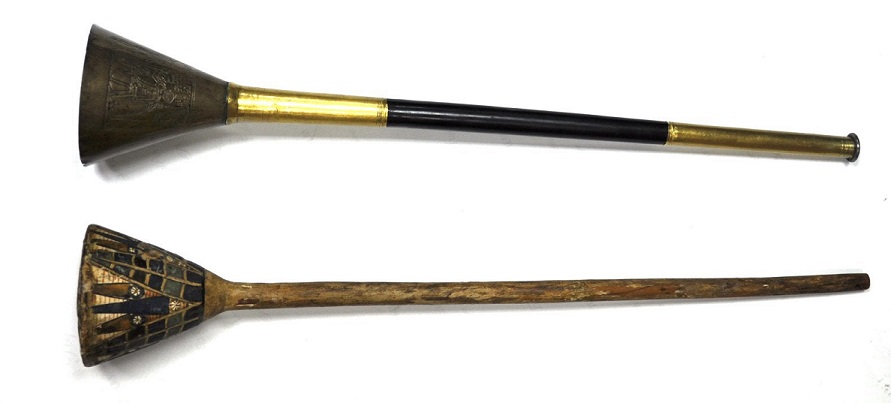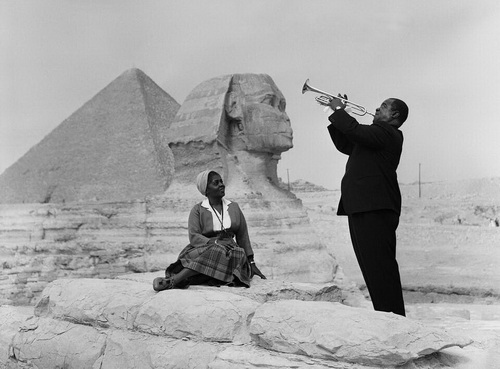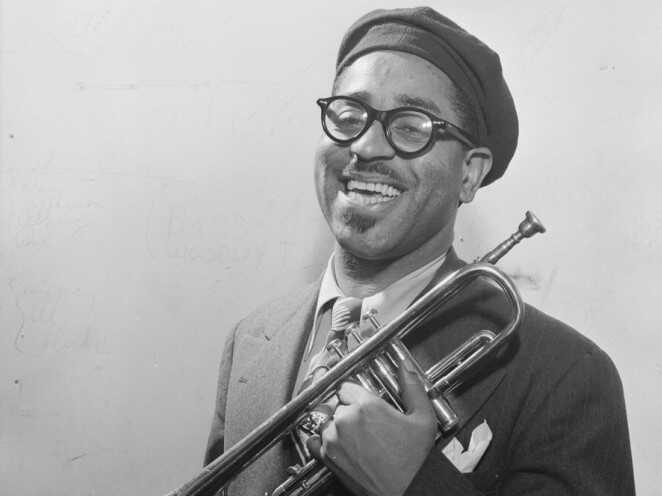Should You Learn To Play Trumpet?
I get asked quite frequently by people I meet, what instrument should my child play? I know this sound crazy, but this is what happens when you're a music teacher. One instrument that people frequently ask me about is trumpet. I would say most parents ask, should my child play trumpet?
Yes! Trumpet is a great instrument to learn. If you like jazz or classical music it is an awesome instrument to learn. You will get to play lots of melodies and take solos.

The History of Trumpet
The trumpet is a musical instrument that has been in existence for thousands of years. Its origins can be traced back to ancient civilizations such as Egypt and Greece, where trumpets were primarily used for ceremonial and military purposes. These early trumpets were typically made of metal or animal horns and were played by blowing into a small hole or aperture near one end.

During the Middle Ages, the trumpet evolved into a more standardized form and began to be used in various forms of secular and religious music. In Europe, trumpets were used in the courts of kings and queens, and were also played in town squares and public gatherings. These trumpets were typically made of metal and had a straight tube with a flared bell at the end.
In the 16th and 17th centuries, the trumpet began to be used in the new Baroque music style, which was characterized by its complex polyphonic textures and virtuosic melodies. Trumpet players of this period began to develop new techniques, such as the use of different valves and mutes, which allowed them to play a wider range of notes and create a wider variety of sounds.

In the 18th and 19th centuries, the trumpet began to be used in various forms of popular and folk music. Trumpets were often used in brass bands and military bands, and were also played in taverns and dance halls. These trumpets were typically made of brass and had a curved tube with a flared bell at the end.
In the 20th century, the trumpet underwent another transformation with the development of the modern trumpet. This trumpet, designed by Vincent Bach, featured new innovations such as the use of different materials, new valve designs, and a larger bell. These new designs allowed for a more powerful sound, greater range and greater flexibility.
The trumpet has been a staple of jazz music since its early days, with jazz trumpet players such as Louis Armstrong, Dizzy Gillespie, Miles Davis, and many others, who have had a major influence on the development of jazz and popular music. Trumpet players in jazz, known as jazz trumpet players, often use the trumpet in a more improvisational and experimental way than in traditional settings.

Trumpets continue to be used in various forms of music including classical music, jazz, Latin, and popular music. Today, trumpet players can choose from a variety of trumpet models and brands, and can also choose from a wide range of mouthpieces, mutes and other accessories to help them achieve their desired sound.
Great Jazz Trumpet Players
- Louis Armstrong

Louis Armstrong, also known as Satchmo or Pops, was a jazz trumpet player, singer, and bandleader who was born in New Orleans, Louisiana in 1901. He began his career playing in various local bands in the city, and quickly established himself as a talented musician with a powerful and distinctive style of playing. He also had a unique singing voice, and his ability to convey emotion through his music made him a popular and influential figure in the jazz world.
In the 1920s, Armstrong began to gain national attention for his work with the Hot Five and Hot Seven ensembles. These groups recorded a number of hit songs, including "Heebie Jeebies," "Potato Head Blues," and "West End Blues." Armstrong's virtuosic trumpet playing and emotive singing on these recordings helped to establish him as a leading figure in jazz, and he soon began to tour the country and perform at major venues.
In the 1930s and 1940s, Armstrong continued to make music and tour, but he also began to appear in films and on radio programs. He also began to incorporate elements of popular music into his performances, which helped to make him even more popular with audiences. He also began to experiment with different styles of jazz, including swing and bebop, which helped to further solidify his position as one of the most important and innovative jazz musicians of his time.
Throughout the 1950s and 1960s, Armstrong remained a popular and influential figure in the world of music. He continued to perform and record, and he also began to spend more time traveling and performing internationally. He also became an advocate for civil rights and used his platform to speak out against racial inequality.
Have you ever wondered why Louis Armstrong's voice sounded the way it did? Check out this article: Why Did Louis Armstrong Sound Like That?
- Miles Davis

Miles Davis, a virtuoso trumpeter and bandleader, was a seminal figure in the realm of jazz music. He was born in Alton, Illinois in 1926 and began his musical career in the 1940s, performing with the likes of Charlie Parker and Dizzy Gillespie. Throughout the 1950s, Davis established himself as a leading figure in the genre, releasing a string of critically acclaimed albums, including "Kind of Blue" and "Sketches of Spain."
Davis' artistry was characterized by his virtuosic trumpet playing and his exceptional ability to meld various musical styles. He was known for his experimentation, seamlessly incorporating elements of bebop, cool jazz, hard bop, and fusion into his compositions. His work pushed the boundaries of jazz and continues to inspire generations of musicians.
In the 1960s, Davis embraced a more experimental and avant-garde approach to his music, incorporating elements of funk, rock and roll, and electronic music into his sound. This period saw the release of albums such as "In a Silent Way" and "Bitches Brew," which were met with both acclaim and controversy. These albums marked a departure from traditional jazz and established Davis as a pioneer in the fusion genre.
His contributions to jazz music were not limited to his music, but also his influence on the culture and fashion during that time, and his band members were also notable figures of jazz music, he had a role in the development of many of the musicians that would later be considered jazz legends.
Davis' influence on jazz and popular music as a whole is immeasurable, and his contributions to the genre continue to be celebrated and studied to this day. He was a musician of extraordinary talent and creativity, and his music continues to resonate with audiences of all ages. He passed away in 1991, but his legacy lives on through his recordings and the countless musicians he has inspired.
- Dizzy Gillespie

Dizzy Gillespie was a jazz musician and bandleader from Cheraw, South Carolina. He is considered one of the most important figures in the development of bebop, a style of jazz characterized by fast tempos, complex harmonies, and virtuosic musicianship. Gillespie began his career as a sideman in various bands, including those led by Cab Calloway and Benny Carter, before forming his own group in the 1940s. If you want to learn how to play the trumpet you can check out our music lessons in Ann Arbor.
Gillespie was a master trumpet player, known for his virtuosity and range. He was also a skilled improviser, incorporating elements of blues and Latin music into his playing. His signature style was characterized by the use of "bent" or "cupped" notes, which involved using the diaphragm to produce a distinctive, growling sound. He was also known for his use of "double-time" playing, in which he would play a fast phrase and then immediately play it again at an even faster tempo.
Gillespie's band was one of the first to feature bebop musicians, and the group's performances helped to popularize the new style. He also worked with other leading bebop musicians, including Charlie Parker and Thelonious Monk, and collaborated with musicians from other genres, such as Machito and Stan Getz. He was a major influence on many later jazz musicians, including Miles Davis, Freddie Hubbard, and Wynton Marsalis.
Gillespie was also known for his showmanship and sense of humor. He often incorporated comedy into his performances, and was known for his playful stage presence. He was also a political activist, using his platform to speak out against racism and injustice.
In addition to his work as a performer, Gillespie was also a composer and arranger. He wrote many compositions that have become jazz standards, including "A Night in Tunisia," "Salt Peanuts," and "Groovin' High." He also wrote music for film and television, including the score for the film "No Room for the Groom."
Gillespie's impact on jazz and music in general is undeniable. He was not only a technically gifted musician but also an innovator and a leader in jazz scene. His influence can be heard in countless jazz performers today. He passed away in 1993 but his legacy lives on through his music and the countless musicians who have been inspired by his work.
Well I hope this article has convinced you to learn to play the trumpet! It's a really fun instrument with a lot of performance potential. It's great for being in a band or playing a Easter church gig. Thank you for reading this article all the way to the end.



